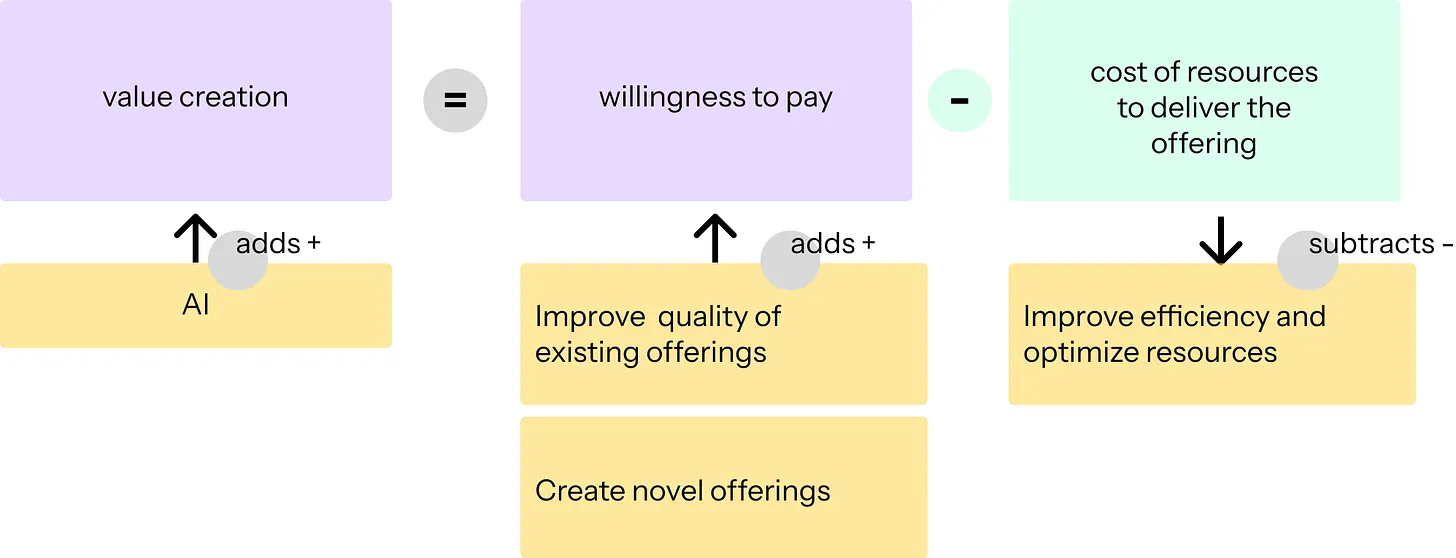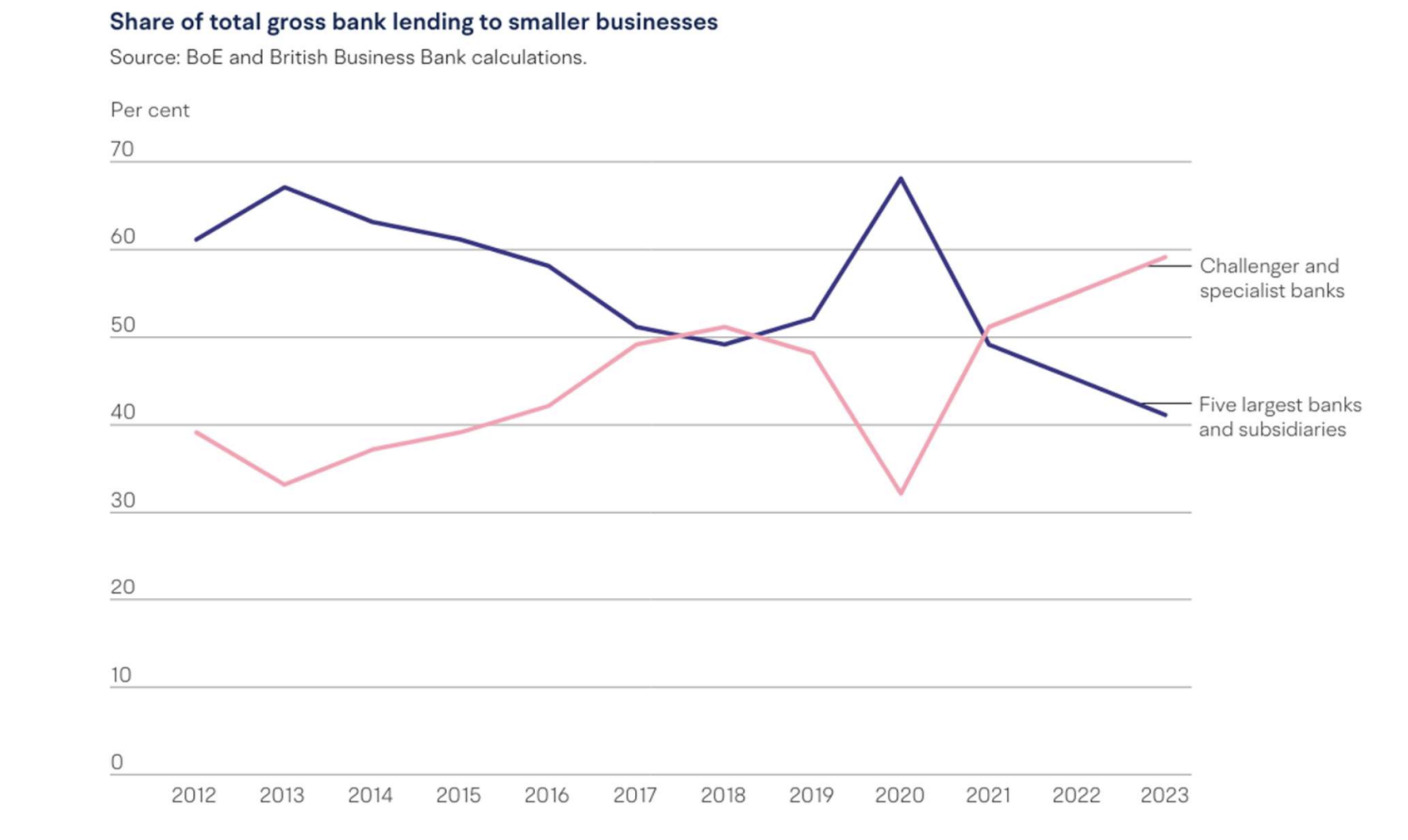Research Topics On strategy
Milking and Making with AI. Towards a framework for Value Creation and Capture in the Enterprise
How does AI create value? To answer this question it´s useful to start from the definition of value capture as “the benefits the user gets from a firm´s offering (product and/or service) expressed in terms of willingness to pay (WTP) minus the cost of resources incurred by the firm to deliver that offering” (INSEAD). AI contributes to this equation in a two types of ways, as illustrated below.

This very simple framework can help frame an AI implementation in terms of either a) increased willingness to pay or/and b)cost reduction.
The amalgama and the bubbles. Exploring the tension between personalisation, belonging and uniformation.
A strand of research I am deeply fascinated about is the inherent contradiciton, and complementarity, between the marketing mantra of product personalisation and our collective need of belonging, in the context of a digitally mediated world that, implicitly or explicity, fosters emulation, homogeneity and uniformation to tropes, patterns and aspirational standards of existence.
The understanding of how this dynamic tension plays out can not only drive companies to better serve their customers, but also provide policimakers, public institutions and decision makers with insights to understand evolving societal trends to design a better future for citosens.
What a user and data problem has to do with a 20% decline in lending to SMEs in the UK.

A newly published report by a UK´s SME Finance Taskforce highlighted how over the past decde, lending to SMEs has declined by 20% in real terms. This equals a estimated funding gap of £22billion.
"Some of that (problem) is because the data being held around these companies has become extremely complex" for financial institutions to confidently evaluate lending opportunities and promptly establish companies´ eligibility - explains Charlotte Crosswell, chair of the task force, speaking at BBCRadio4 Today´s programme, on August 1st.
And as a result, sometimes lending is not offered to those companies who desperately need it. Also companies often give up on expanding their business, hiring the next person or acting upon opportunities for modernising and innovating their operations.
These are the kind of business problems that we should talk about when we talk about AI. Data accessibility, prompt information retrieval, manual processes that slow businesses down. If anything, the UK case proves how huge are social and financial costs of business as asual. It reminds us how pertinent are the notions of AI, trusted data and information access and findability - regardless how abruptly the narrative surrounding AI can change on Wall Street.
On the need of a Human Centred perspective to tackle online Misinformation.
"The multifarious, potential threats that misinformation and disinformation pose to society and public welfare justify our worrying about their spread. "
The study of Misinformation and Disinformation trends on the Web is part of a broader personal interest on the relationship between digital media, new technologies such as AI, behavioural theory and clinical psychological studies. To date I´ve published a short editorial on the relationship between User Experience design and the development of reliable means of distinguishing fact from opinion or outright fiction, based on a literature review.